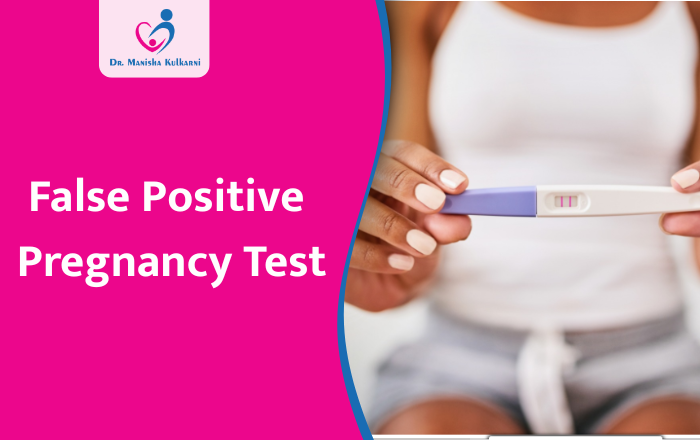Staring at a positive pregnancy test can bring a mix of emotions – excitement, surprise, or even confusion. But what happens when that positive result doesn’t feel right? You might wonder if your false positive pregnancy test is giving you the wrong answer. While pregnancy tests are usually accurate, false positives do happen. If you’re questioning your test results, you’re not alone. Many women experience this uncertainty, and understanding why it occurs can help you figure out your next steps. Let’s explore what causes false positive pregnancy tests and what you should do if you think your test might be wrong. How Pregnancy Tests Work Home pregnancy tests detect a hormone called hCG (human chorionic gonadotropin) in your urine. Your body starts making this hormone when a fertilized egg attaches to your uterus wall. The hormone levels double every few days in early pregnancy. Most home tests can detect hCG about 10-14 days after conception, which is usually around the time of your missed period. However, the accuracy depends on several factors, including when you test and how you follow the instructions. What Causes False Positive Pregnancy Tests 1. Chemical Pregnancy A chemical pregnancy happens when an egg gets fertilized but doesn’t properly implant in your uterus. Your body starts making hCG, which shows up on a pregnancy test. However, the pregnancy ends very early, often before you even miss your period. This is actually quite common and affects up to 75% of all miscarriages. You might get a positive test one day, then start your period a few days later, or get negative tests when you retest. 2. Certain Medications Some medications can interfere with pregnancy test results. Fertility drugs that contain hCG are the main culprits. These include: Injectable fertility treatments Some hormone replacement therapies Certain medications for weight loss If you’re taking any fertility medications, talk to your doctor about when to test for pregnancy. The hCG from these drugs can stay in your system for several days after your last dose. 3. Medical Conditions Some health conditions can cause your body to produce hCG when you’re not pregnant: Ovarian Cysts: Large cysts on your ovaries can sometimes produce hormones that affect test results. Kidney Problems: If your kidneys aren’t working properly, protein in your urine might interfere with the test. Certain Cancers: Very rarely, some types of cancer can produce hCG. This is uncommon but worth mentioning. 4. Recent Pregnancy Loss If you’ve recently had a baby, miscarriage, or abortion, hCG can remain in your body for several weeks. The hormone levels drop gradually, so you might get positive pregnancy tests even though you’re not currently pregnant. Typically, hCG levels return to normal within 4-6 weeks after a pregnancy ends, but this varies from person to person. 5. Faulty or Expired Tests Like any product, pregnancy tests can be defective or lose their effectiveness over time. Check the expiration date before using any test. Store tests in a cool, dry place – heat and moisture can damage them. Also, reading the test results outside the recommended time window (usually 3-5 minutes) can lead to confusing lines that aren’t real positive results. 6. User Mistakes Even simple mistakes can affect your results: Using diluted urine (drinking too much water before testing) Not using enough urine on the test stick Reading results too early or too late Using the wrong type of urine collection For the most accurate results, use your first morning urine when hCG levels are most concentrated. 7. Evaporation Lines Sometimes, as urine dries on the test, it leaves a faint line where the positive result would appear. This evaporation line looks similar to a positive result but isn’t actually detecting hCG. True positive lines usually have some color (pink or blue, depending on the test brand), while evaporation lines are often colorless or gray. Signs Your Positive Test Might Be Wrong Several clues might suggest your positive pregnancy test isn’t accurate: Very faint lines that don’t get darker with repeat testing No early pregnancy symptoms (nausea, breast tenderness, fatigue) Getting negative results when you retest Your period arrives on schedule The positive line appeared after the recommended reading time What to Do If You Suspect a False Positive Wait and Retest If you’re unsure about your results, wait 2-3 days and test again using first morning urine. If you’re pregnant, the hCG levels should increase, making the line darker. Try using a different brand of test or a digital test, which shows “pregnant” or “not pregnant” instead of lines. See a Healthcare Provider Consider scheduling an appointment with a doctor if: You keep getting conflicting results You have concerning symptoms You’ve had recent pregnancy complications You’re taking medications that might interfere with results Your doctor can perform a blood test, which is more accurate than home urine tests. Blood tests can detect smaller amounts of hCG and can tell you exact hormone levels. When to Test for Best Accuracy For the most reliable results: Wait until at least one day after your missed period Use first morning urine Don’t drink excessive amounts of liquid before testing Read results within the specified time frame Follow all package instructions carefully Managing the Emotional Side Dealing with uncertain pregnancy test results can be stressful. Whether you’re hoping to be pregnant or hoping you’re not, conflicting results create anxiety. Remember that false positives are uncommon, and most positive tests are accurate. However, if something doesn’t feel right, trust your instincts and seek medical guidance. Take care of yourself during this uncertain time. Talk to someone you trust, practice stress-reduction techniques, and remember that you’ll have clear answers soon. Need Clarity About Your Pregnancy Test Results? Consult Dr. Manisha Kulkarni in Magarpatta A false positive pregnancy test can be confusing, emotional, and stressful. But understanding the causes whether it’s a chemical pregnancy, leftover hormones, certain medications, or a test error can help you make sense of what’s happening. If you’re facing uncertain results, don’t try to figure it


